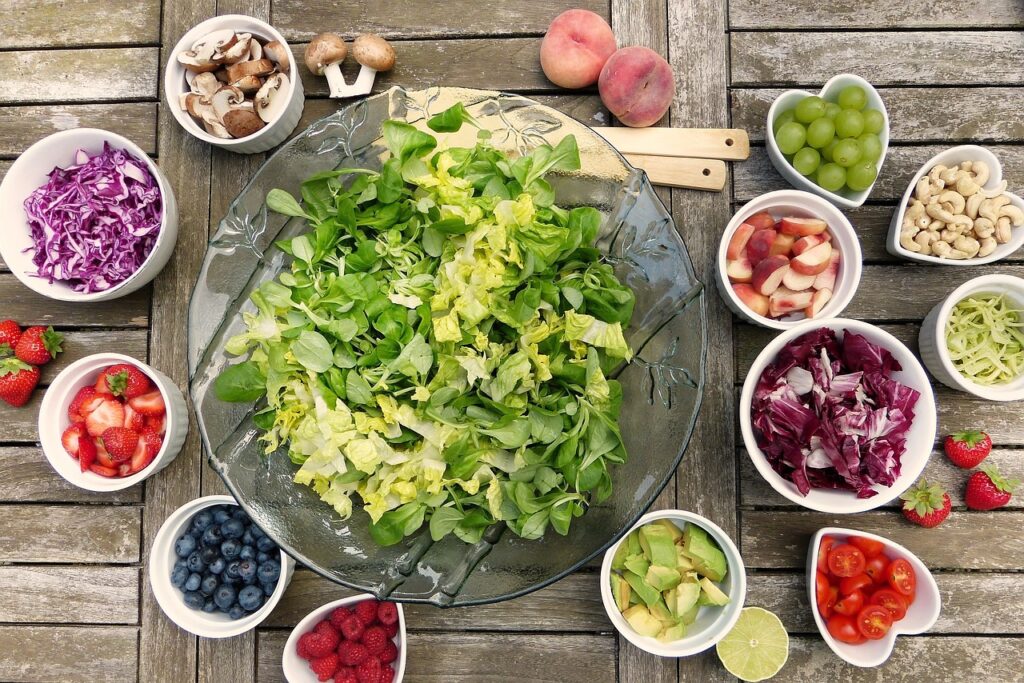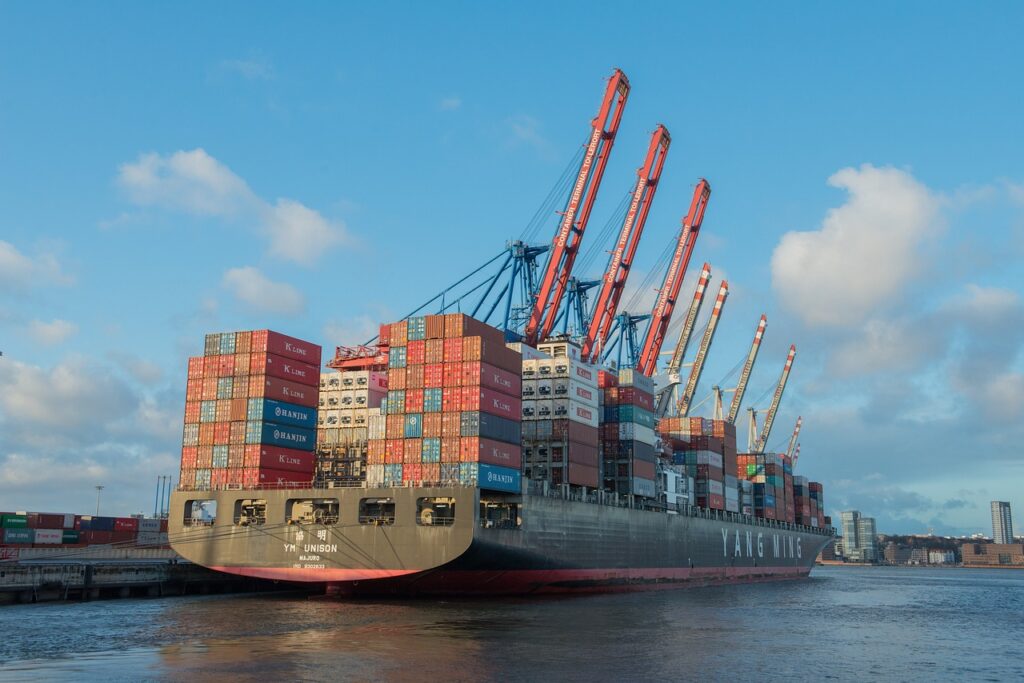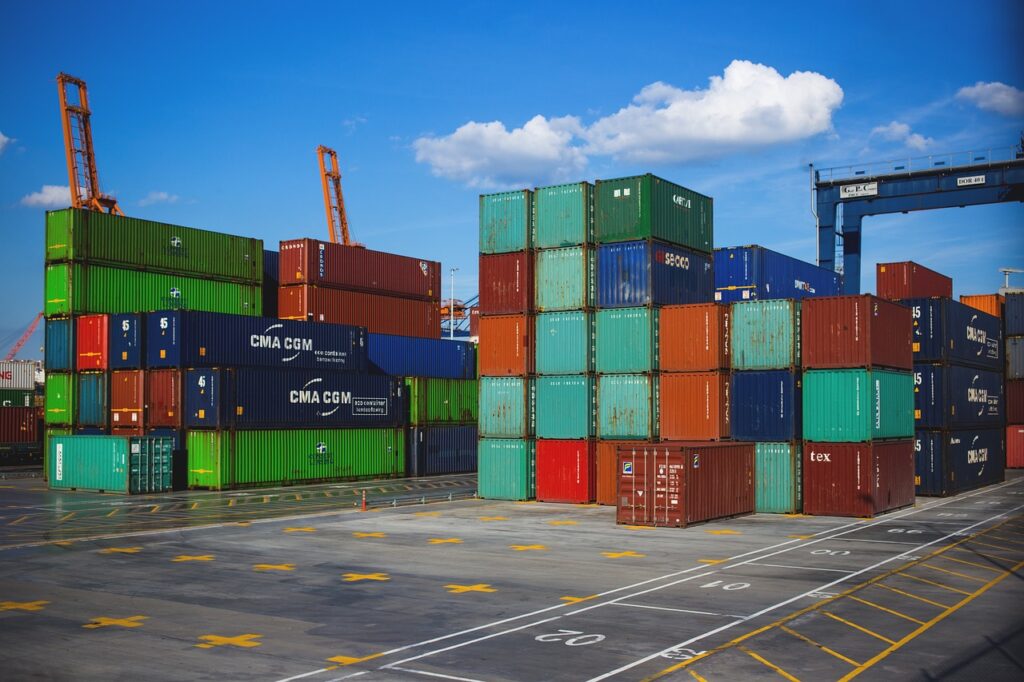Exporting vegetables and fruits requires a deep understanding of several basic aspects. The operator should have extensive knowledge of the global and regional market, and the trends that govern it. He or she must also be aware of the receiving countries’ regulations, institutional set-up, and infrastructure available to ensure the quality of the products. It is equally important to know the specific, professional and national requirements and good practices that must be adhered to.
It is also important that the documents are accessible to everyone, as they include the necessary forms, certificates and licenses. These documents play a crucial role in the export process, and require full familiarity with them to ensure smooth and efficient workflow.
The influence of actors on export operations
The contribution of actors in the export chain is essential to ensure the success of the entire process. These actors provide a variety of necessary documents, both direct and indirect, ensuring that the process complies with international and local standards.
Submit the necessary documents
Documentation provided by actors includes product traceability, test bulletins for quality control, as well as calibration of tools used in evaluation and HACCP certificates. These documents are essential to ensure that products comply with international standards and are safe.
The importance of certifications and recognized practices
In addition to the usual documentation, players offer certificates such as ISO 22000, ISO 9001, Good Manufacturing Practices and others. These certificates reflect their commitment to providing high-quality products that conform to recognized international standards, which enhances the brand’s reputation and opens the door to export opportunities.
The main partners in the export process from Algeria
In the arena of exports from Algeria, a group of key players is advancing and playing a prominent role in facilitating and facilitating this process. Official and accredited bodies and institutions are among the most prominent of these actors:
- ALGERAC: Algerian Accreditation Authority
- IANOR: Algerian Institute of Standardization
- ONML: National Office of Legal Metrology
- Accredited testing and calibration laboratories 17025
- Certification agencies accredited with ISO 17021 by the Algerian Accreditation Authority
Basic standards and certificates in export operations
Quality and compliance with standards are at the forefront of considerations when exporting from Algeria. Among the most common criteria to take into account:
- ISO standards: 17025, 17020, 19011, 17065
- Codex HACCP
- ISO 22000
- IFS BRC food safety certification
- UNECE standards: model documents describing the conformity of agricultural products
- Specifications of local product brands
Thanks to these joint efforts and the high standards applied, Algerian products can compete strongly in global markets and be accepted and trusted by international consumers.
Phytosanitary licensing controls
To ensure the successful export of plant products, there are key requirements that must be adhered to in accordance with Algerian regulations and laws. These requirements include:
1. Plant Health Protection Law:
Law No. 87-17 of August 1, 1987 stipulates the necessity of taking the necessary measures to protect plants from pests and diseases.
2. Regulation of phytosanitary control:
Executive Decree No. 93-286, in effect since November 23, 1993, regulates phytosanitary control operations at borders to ensure the safety of exported products.
3. Quality standards for dates for export:
Ministerial Decree No. 11/17/1992 stipulates the necessary quality standards and export procedures for dates.
4. Regulating control over the export of dates:
Resolution No. 105 dated September 28, 2000 relates to organizing control operations over the export of dates to ensure the application of standards and requirements.
5. Date control system on packaging sites:
Memorandum No. 1051 dated October 13, 2001 establishes a date control system on packaging sites to ensure product quality and traceability.
Additional measures:
In addition, the product must have an internationally recognized standard form, as well as a test bulletin specifying limits for pesticide residues in products, both of which are provided by the Phytosanitary Authority (INPV).
By adhering to these controls and regulations, Algerian exporters ensure the provision of products of high quality and compliance with international standards, which enhances their reputation in global export markets.
Controls for obtaining health and trade certificates for exported products
Requirements for obtaining health and trade certificates for exported products vary and are an essential part of the export process. These requirements are based on a set of regulations and standards, and are applied to ensure the quality of products and their compliance with international standards. Here is a comprehensive look at these controls:
Focus on phytosanitary:
Phytosanitary certification is one of the main focuses, as operators pay great attention to ensuring that products conform to phytosanitary standards before other certifications.
Pesticide residue analysis:
This process raises great concern among exporters, as they look for accurate analysis services to ensure compliance with the requirements of partners and customers in importing countries.
Microbiological analyses:
These analyzes are traditionally performed in private laboratories, sometimes lacking the chemical standards required for compliance.
International standards:
A set of benchmarks such as environmental protection laws and international food directives define the quality and safety of exported products.
Sharing responsibility:
Responsibilities are distributed between several governmental and private agencies, which imposes on exporters the responsibility to ensure that the required standards are applied.
Continuous improvement:
The competent authorities are working to develop the procedures and standards in place to ensure continuous improvement and development in export operations.
Meeting legal and regulatory requirements:
Export operations require full compliance with applicable national and international legislation and regulations in the source and destination country.
By continuing to adhere to these controls and standards, Algerian exporters can achieve sustainable success in the export market and build a strong reputation for their products internationally.
Trade certification requirements for exported products require careful detail and understanding of international standards and local guidelines. In the process of issuing a commercial compliance certificate, international standards play an essential role in facilitating business operations and resolving disputes effectively.
Most of these standards come from internationally recognized standard references, such as those issued by the Organization for Economic Co-operation and Development, and include:
- CEE-ONU 008 -2010 for dates.
- CEE-ONU 036 -2017 for tomato and olive commercial specifications.
- UNECE Framework Standard for Fresh Fruits and Vegetables 2017.
- Guidelines and recommendations for conducting objective tests to determine the quality of vegetables and fruits.
- Recommendation of the United Nations Economic Commission for Europe on sampling plans for dried fruits and products.
- Approved food constitutions for food labeling and delivery and transportation standards for fresh vegetables and fruits.
- Establishing technical regulations at the national level to improve the quality and safety of products.
These standards and guidelines are not just rigid documents, but rather reflect joint efforts to ensure the quality of exported products and their compliance with global market requirements, which facilitates the export process and increases the confidence of consumers and trading partners alike.
At the national level, a set of basic regulations are applied in Algeria aimed at ensuring the quality and compliance of exported products. These regulations include:
- First, Executive Decree No. 05-484 of December 22, 2005, amending and supplementing Executive Decree No. 90-367 of November 10, 1990, relating to the poisoning and serving of foodstuffs, guarantees the quality of our products.
- Secondly, the Ministerial Decree of August 5, 2009 approving the technical regulations relating to the regulation of wooden packaging materials for trade, which enhances and protects the safety of our products.
- For its part, Executive Decree No. 13-378 issued on November 9, 2013, defines the terms and conditions related to consumer information, which enhances the transparency of trade operations and protects the rights of consumers.
- Executive Decree No. 17-62 issued on February 7, 2017, which specifies the conditions and characteristics of marking compliance with technical systems and procedures for certifying compliance, ensures that our products bear reliable marks of quality and compliance.
- Finally, the decision issued on March 29, 2017, which defines compliance assessment levels and procedures, which contributes to achieving high international standards and strengthens the position of our products in global markets.
Here is an exciting example of the possibilities for exporting vegetables and fruits to Malaysia, where interesting opportunities exist for operators:
When we look at the possibility of exporting agricultural products to Malaysia, we find that this market opens its doors wide to importers. Assuring quality and health is essential in this context, and this is achieved through the following mechanisms:
- Firstly, through the Phytosanitary Insurance Scheme, which reflects our commitment to ensuring the safety and health of products.
- Secondly, through the steam sterilization certification scheme, which enhances the credibility of our products and facilitates their entry into the Malaysian market.
- Thirdly, through the Phytosanitary Certification Scheme, which validates our efforts in maintaining the quality and suitability of our products.
- Finally, through the GAP certification scheme, we demonstrate our commitment to good and sustainable agricultural practices, making our products desirable in the Malaysian market.
- In addition, the Malaysian government provides support and partnerships to exporters, with the aim of facilitating procedures and supporting success in expanding export operations.
Recommendations
To ensure the quality of exported fruit and vegetable products and achieve compliance with phytosanitary standards, he makes the following suggestions:
List of recommendations for phytosanitary operations:
- First, it is recommended that pesticides used on exported vegetables and fruits, especially those destined for export, be carefully identified based on the 2021 Phytosanitary Index.
- Second, maximum pesticide residue limits need to be set according to the requirements of importing countries, which are constantly evolving to ensure product safety.
- Third, it is advisable to prioritize in analyses, compared to products with high export potential, to achieve greater efficiency in the use of resources.
- Fourth, the optimal analysis methods for the active ingredients should be determined and a quadruple analysis should be performed to select the appropriate equipment at the lowest possible cost, preferably using the multiple-residue method.
- Fifthly, the necessary specifications for the acquisition of equipment necessary for analytical operations should be issued.
- Sixth, it is recommended that laboratory staff be registered to receive the necessary training on the methods chosen for analysis.
- Finally, a program must be established for at least ten years to determine the maximum pesticide residues, in addition to registering test methods related to market needs, adopting the international standard ISO 17025.
Updating the phytosanitary accreditation system for the dates, vegetables and fruits market constitutes an essential part of developing the agricultural sector, and requires diverse and integrated efforts to achieve its goals. In this context:
- The phytosanitary system is being shaped by strengthening the number of licensed and accredited institutional partners, with the Directorate of Plant Protection and Technical Control playing a key role in this regard. Therefore, it is important for this Directorate to conduct periodic supervision and monitoring audits to ensure compliance with applicable directives, and to develop procedures and instructions related to phytosanitary certification to effectively regulate selection, production and export operations.
- The phytosanitary management system should be established on the basis of risk analysis, which contributes to identifying appropriate activities to intervene and control phytosanitary matters in an innovative and effective way.
- Modernization also requires measures to improve the efficiency of phytosanitary agents, and strengthen the profession of phytosanitary certification inspectors, with the aim of ensuring that procedures and standards are applied accurately and effectively.
- Urgent corrective action should also be taken in the event of any defect or violation of phytosanitary certification procedures, to ensure the safety and quality of exported products.
- In addition, focus should be placed on strengthening the operational processes of the phytosanitary system to ensure that procedures and standards are implemented comprehensively and regularly, thus contributing to building a positive reputation for Algerian products in global markets.
To meet the growing needs of exporters, the competent authority must evolve in line with the opportunities offered by national and international regulations regarding phytosanitary guidelines and series of international standards for phytosanitary measures. These developments include:
- First, the rapid publication of an order relating to the Phytosanitary Intervention Protocol, before and during export operations, contributes to clarifying the responsibilities of the parties concerned quickly and effectively.
- Secondly, the rapid publication of an order specifying the laboratories of various institutions specializing in the examination of dates, vegetables and fruits, by granting approved licenses, in accordance with the principle of the National Center for Quality Control and Packaging with specialized laboratories, provided that they obtain ISO 17025 accreditation.
a summary
The export process of vegetables and fruits is subject to strict sanitary and phytosanitary controls, as global consumer protection associations and citizens’ movements have developed standards that guide exporters.
Global interest is mainly focused on monitoring pesticide levels in products and ensuring the safety of irrigation water, which highlights the importance of exporting companies adhering to international standards and legislation in this regard.
Regardless of the challenges and complexities, we must realize that exporting based on risk analysis constitutes the basic foundation and, when implemented objectively and transparently, will pave the way towards greater success in export operations.



